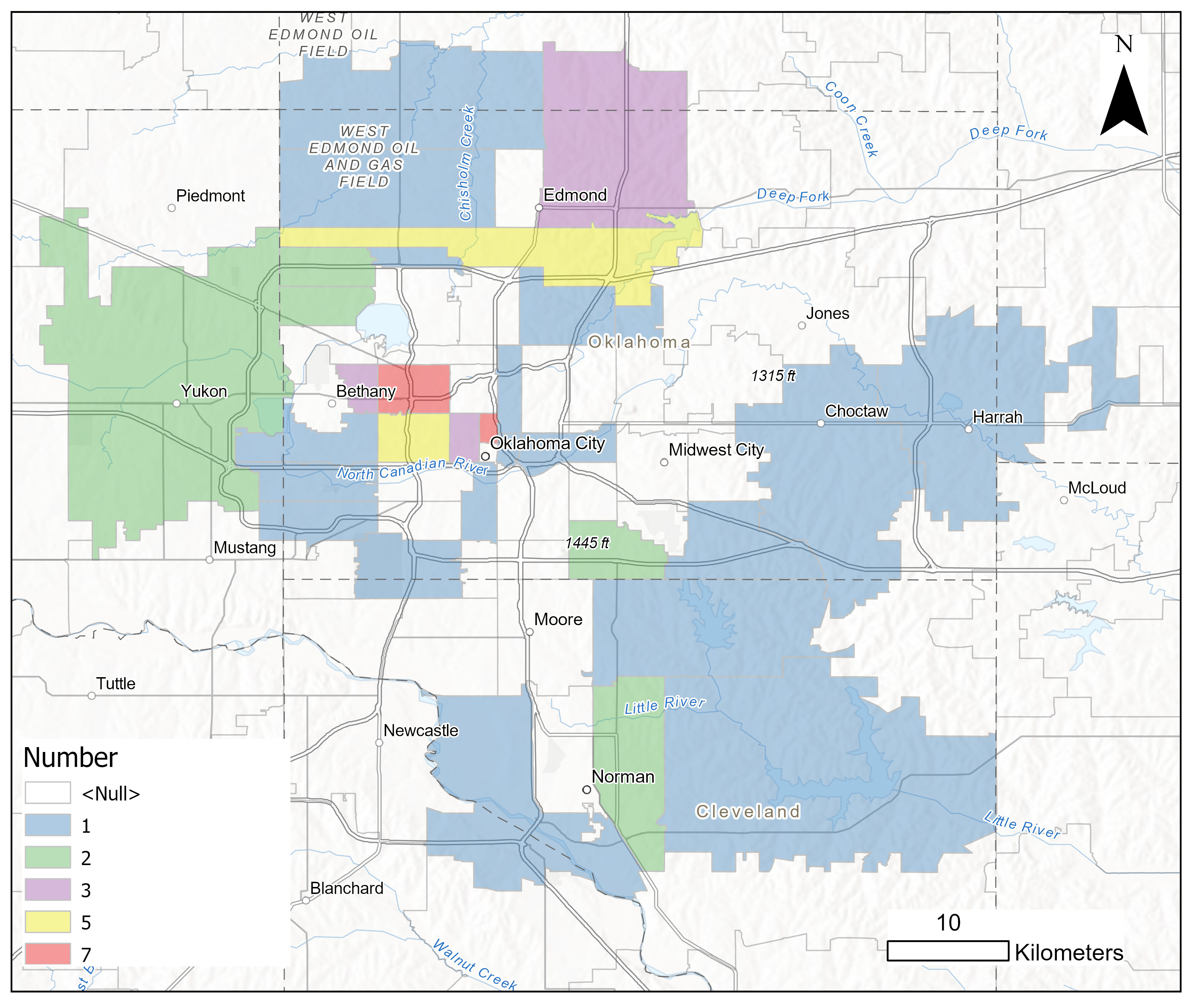Abstract
The objective of this Civic Innovation Challenge Planning Grant (CIVIC-PG) is to support research on novel measures to predict and prevent urban tree damage caused by ice storms. Ice storms are among the most damaging weather hazards to urban tree population, yet their effect remains poorly understood. Often situated in the transition zone between solid snow and liquid rain precipitation during the winter season, freezing rain occurring over the Southern Great Plains region could create large amounts of ice accumulation on urban trees and other structures. While local communities in this region are familiar with severe storm warning and shelter-seeking advisory, they are less prepared for or knowledgeable about resulting urban tree damage and cascading risk to properties and infrastructures caused by ice storms. The project team partners with stakeholders from industry, government, and non-profit organizations in Oklahoma City (OKC), Oklahoma. Through community engagement and participatory research, the planning project aims to empower citizens in data collection, problem-solving, and resilience-building efforts in support of social cohesion, trust, and collective responsibility. Using metropolitan OKC area as the pilot site, the research project examines factors contributing to urban tree vulnerability and develops effective solutions to mitigate risks. The goal is to create an urban tree observatory and accompanying social network in the OKC. The interdisciplinary team organizes a series of surveys and interviews to gather local knowledge. Specific tasks in Stage 1 include: (1) construct a framework to identify areas with potential risk of urban tree damages; (2) co-design and co-produce interventions addressing community-identified needs and priorities; and (3) enhance education and public awareness about the importance of urban trees, and the risk posed by ice storms. This project generates new knowledge, tools, and best practices that can be shared across communities, regions, and sectors. Collectively, they promote learning and collaboration, and foster a culture of preparedness and adaptation to ice storms. This project is in response to the Civic Innovation Challenge program’s Track A. Climate and Environmental Instability - Building Resilient Communities through Co-Design, Adaption, and Mitigation and is a collaboration between NSF, the Department of Homeland Security, and the Department of Energy.
Background
About the NSF CIVIC Challenge, Stage 1, and why this matters for Oklahoma City.
What is the NSF CIVIC Challenge?
A funding initiative from the National Science Foundation (NSF) to encourage community-driven innovation. Focuses on partnerships between researchers and local communities to solve real-world problems.
What is Stage 1?
Provides planning and research funding ($75,000) to explore innovative solutions. Helps build partnerships, conduct pilot studies, and gather community input. Lays the foundation for applying to Stage 2, where up to $1 million is awarded for implementation.
Our Project
Tree Hazard Monitoring and Early Warning System for Ice Storms & Tree Damage. Goal: Develop a community-informed, science-based system to help prepare for and mitigate ice storm damage.
Why This Matters
- Ice storms cause widespread tree damage, power outages, and road hazards.
- Resilience reduces damage, improves safety, and protects urban forests.
- Community participation ensures proposals are useful and accessible.
Research Purpose

Team Members
Chengbin Deng, PhD
Associate Professor, Department of Geography and Environmental Sustainability; Director, Center for Spatial Analysis (CSA), University of Oklahoma
Natalie Evans, MPA
Program & Marketing Director, OKC Beautiful
Brendan Lavy, PhD
Assistant Professor, Department of Environmental and Sustainability Sciences, TCU
Ming Xue, PhD, FAMS, FAGU
Professor, Department of Meteorology; Director, Center for Analysis and Prediction of Storms (CAPS), University of Oklahoma
Di Liu, PhD
Postdoctoral Researcher, Center for Spatial Analysis (CSA), University of Oklahoma
Yongjie Huang, PhD
Research Scientist, Center for Analysis and Prediction of Storms (CAPS), University of Oklahoma



